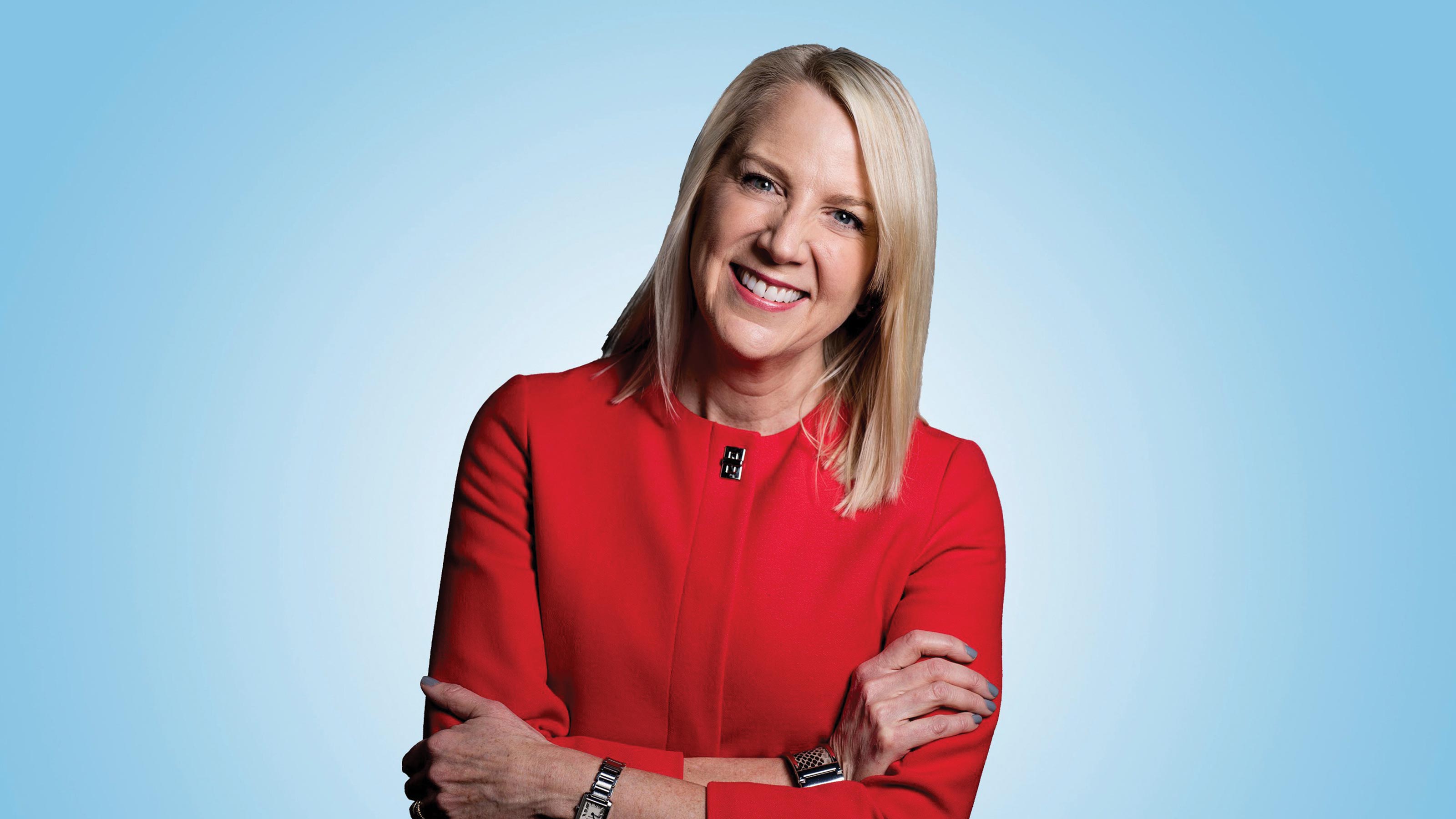Build Your Own Company
How one woman started out as a secretary and found entrepreneurial success as the CEO of a multi-million-dollar construction company.

Profit and prosper with the best of Kiplinger's advice on investing, taxes, retirement, personal finance and much more. Delivered daily. Enter your email in the box and click Sign Me Up.
You are now subscribed
Your newsletter sign-up was successful
Want to add more newsletters?

Delivered daily
Kiplinger Today
Profit and prosper with the best of Kiplinger's advice on investing, taxes, retirement, personal finance and much more delivered daily. Smart money moves start here.

Sent five days a week
Kiplinger A Step Ahead
Get practical help to make better financial decisions in your everyday life, from spending to savings on top deals.

Delivered daily
Kiplinger Closing Bell
Get today's biggest financial and investing headlines delivered to your inbox every day the U.S. stock market is open.

Sent twice a week
Kiplinger Adviser Intel
Financial pros across the country share best practices and fresh tactics to preserve and grow your wealth.

Delivered weekly
Kiplinger Tax Tips
Trim your federal and state tax bills with practical tax-planning and tax-cutting strategies.

Sent twice a week
Kiplinger Retirement Tips
Your twice-a-week guide to planning and enjoying a financially secure and richly rewarding retirement

Sent bimonthly.
Kiplinger Adviser Angle
Insights for advisers, wealth managers and other financial professionals.

Sent twice a week
Kiplinger Investing Weekly
Your twice-a-week roundup of promising stocks, funds, companies and industries you should consider, ones you should avoid, and why.

Sent weekly for six weeks
Kiplinger Invest for Retirement
Your step-by-step six-part series on how to invest for retirement, from devising a successful strategy to exactly which investments to choose.
On the way to a meeting of the Women's Leadership Forum in New York City, I settled back on the train and immersed myself in the Harvard Business School case study that would be the topic of the forum. I've always thought of case studies as academic exercises, but the real-life story of Linda Rabbitt, the founder and CEO of rand* construction, a multi-million-dollar company based in Alexandria, Va., had all the ingredients of a compelling novel.
Rabbitt’s decision was a smart one that’s becoming more common, says Harvard Business School professor Boris Groysberg, who authored Rabbitt’s case study and also spoke at the forum. “If you leave on good terms, chances are former employers will reach out to you in the future,” says Groysberg. “It’s also a signal to other employees that the grass isn’t greener.”
Star power. Groysberg, author of Chasing Stars: The Myth of Talent and the Portability of Performance, specializes in studying women in leadership roles. He says that Rabbitt “does a lot of the things that stars do.” For example, star professionals have broader and deeper networks, and women tend to have more external networks than men. Women who make it to the top are survivors, and Rabbitt is the definition of a survivor: “She had to establish credibility in a heavily male-dominated industry.”
From just $107.88 $24.99 for Kiplinger Personal Finance
Become a smarter, better informed investor. Subscribe from just $107.88 $24.99, plus get up to 4 Special Issues

Sign up for Kiplinger’s Free Newsletters
Profit and prosper with the best of expert advice on investing, taxes, retirement, personal finance and more - straight to your e-mail.
Profit and prosper with the best of expert advice - straight to your e-mail.
Being a woman in the construction business carried “zero advantage,” says Rabbitt. After she remarried, her second husband encouraged her. “He told me, ‘You keep thinking you need to be an engineer. But you need to be Lee Iacocca, selling the company and leaving the rest to your superintendents.’ ”
In his research, Groysberg found that when star men change jobs, they don’t do as well in their new organizations as star women who make a switch. One reason is that women have to rely more on their own talents, which makes them more portable. And they’re more thoughtful about making sure that their new employer is a good match, while men tend to move to boost their compensation.
Successful women also credit the support they receive from spouses who help out at home and fathers who told them anything is possible. Rabbitt would agree. One of her regrets, she says, is that “my father never saw my success.”
Profit and prosper with the best of Kiplinger's advice on investing, taxes, retirement, personal finance and much more. Delivered daily. Enter your email in the box and click Sign Me Up.

Janet Bodnar is editor-at-large of Kiplinger's Personal Finance, a position she assumed after retiring as editor of the magazine after eight years at the helm. She is a nationally recognized expert on the subjects of women and money, children's and family finances, and financial literacy. She is the author of two books, Money Smart Women and Raising Money Smart Kids. As editor-at-large, she writes two popular columns for Kiplinger, "Money Smart Women" and "Living in Retirement." Bodnar is a graduate of St. Bonaventure University and is a member of its Board of Trustees. She received her master's degree from Columbia University, where she was also a Knight-Bagehot Fellow in Business and Economics Journalism.
-
 Over 65? Here's What the New $6K Senior Bonus Deduction Means for Medicare IRMAA
Over 65? Here's What the New $6K Senior Bonus Deduction Means for Medicare IRMAATax Breaks A new deduction for people over age 65 has some thinking about Medicare premiums and MAGI strategy.
-
 U.S. Congress to End Emergency Tax Bill Over $6,000 Senior Deduction and Tip, Overtime Tax Breaks in D.C.
U.S. Congress to End Emergency Tax Bill Over $6,000 Senior Deduction and Tip, Overtime Tax Breaks in D.C.Tax Law Here's how taxpayers can amend their already-filed income tax returns amid a potentially looming legal battle on Capitol Hill.
-
 5 Investing Rules You Can Steal From Millennials
5 Investing Rules You Can Steal From MillennialsMillennials are reshaping the investing landscape. See how the tech-savvy generation is approaching capital markets – and the strategies you can take from them.
-
 How to Boost Your Financial Savvy
How to Boost Your Financial SavvyWomen & Money Women need to know how financial knowledge can help them take care of their families and themselves.
-
 A Talk With Carrie Schwab-Pomerantz
A Talk With Carrie Schwab-PomerantzWomen & Money Investing is the key to building a nest egg that will last a long lifetime, says Schwab-Pomerantz.
-
 Women, Invest in Yourself
Women, Invest in YourselfWomen & Money Morningstar's Christine Benz tells women to match investment risk to their longer life expectancy.
-
 Fresh Voices in Personal Finance
Fresh Voices in Personal FinanceWomen & Money An impressive number of young women have entered the personal finance field via blogs, websites and social media.
-
 Women Blazing a Trail in Finance
Women Blazing a Trail in Financebusiness What drew these women into the financial field, and what lessons can they share with young women?